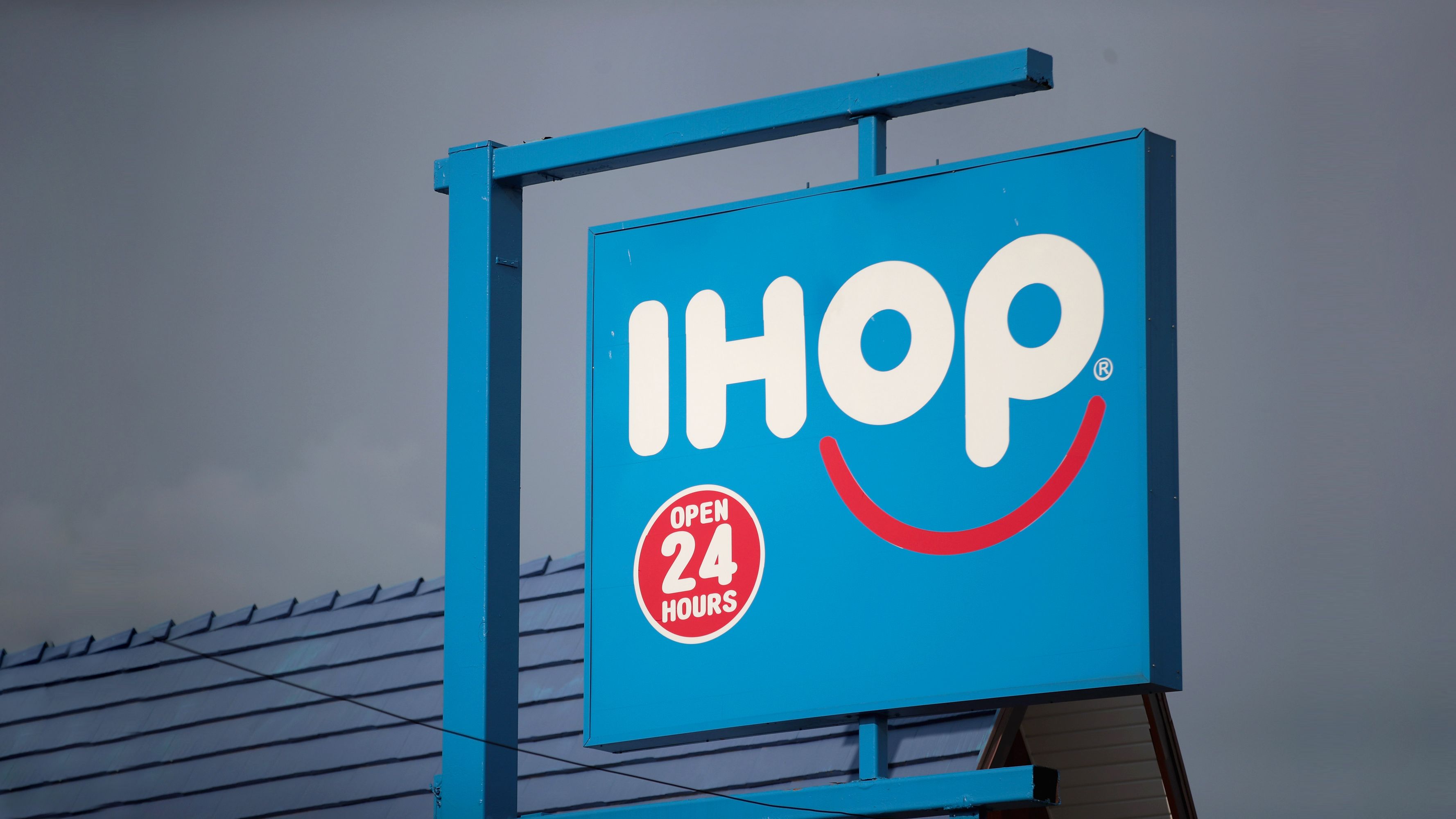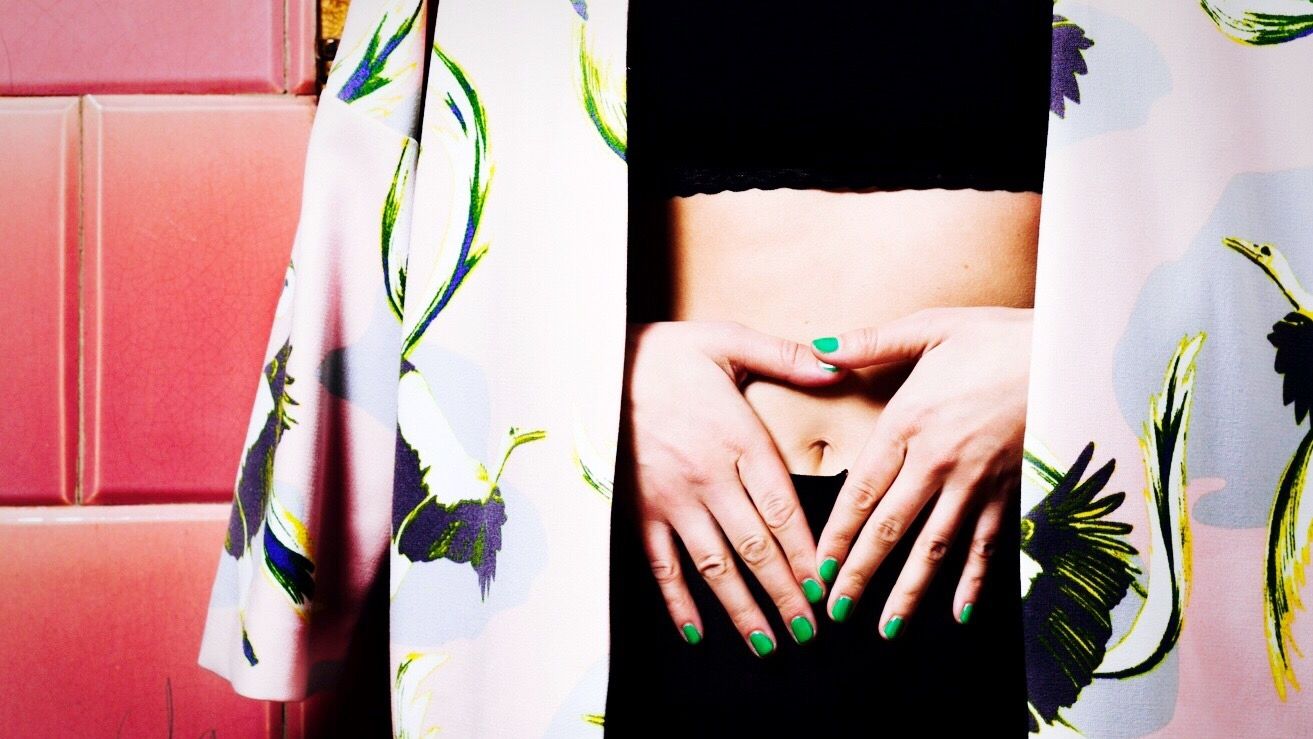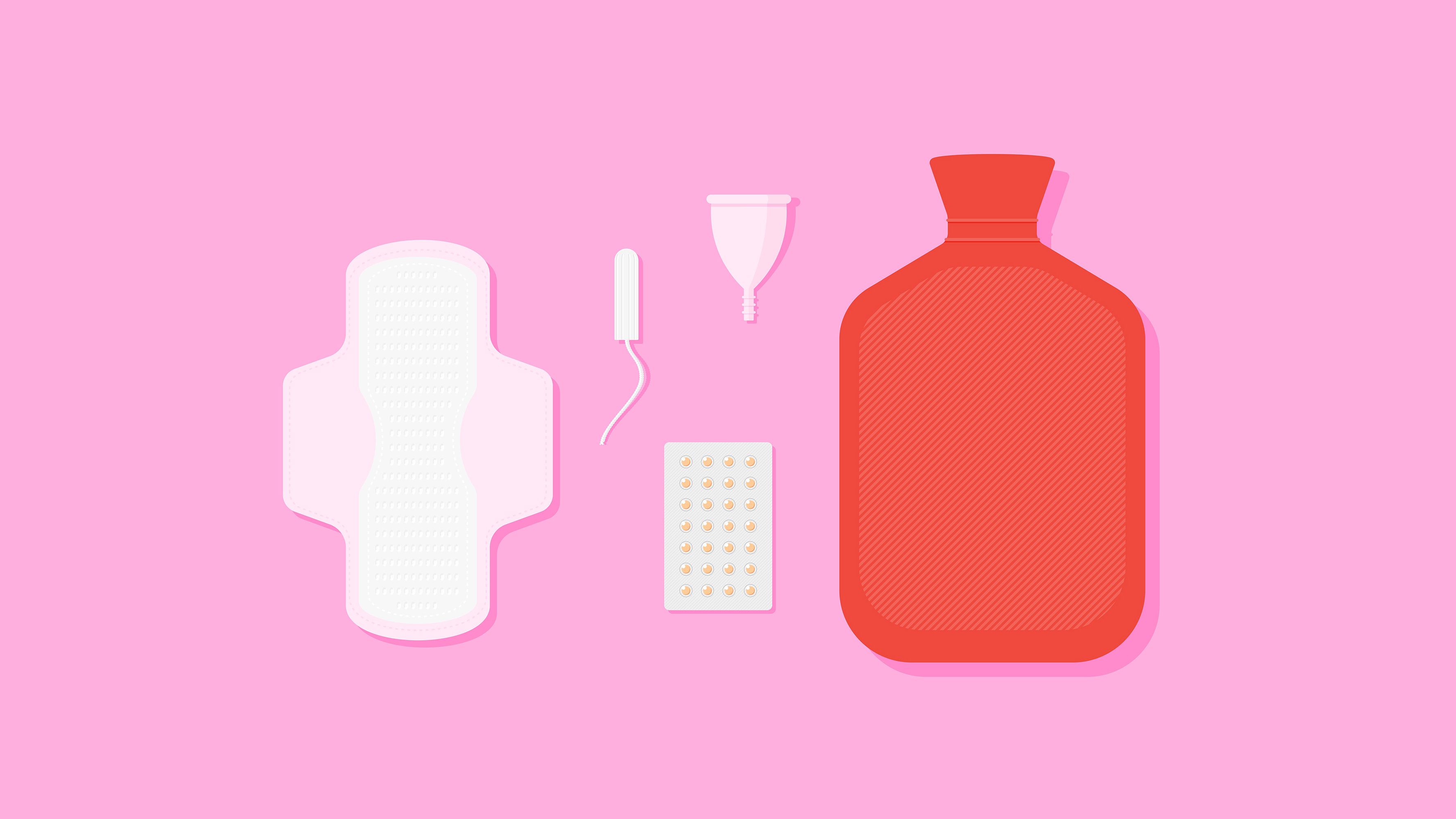The New IHOP Logo Looks Like a Tampon Ad and People Are Into It
One chain’s PR flub is another company’s PR opportunity.

Menstrual equity—that is, equality in how people who have periods are treated by society—has made some advances in recent years. The movement has seen a groundswell of support for measures like repealing the tampon tax and making sure menstrual products are affordable and available to school kids, inmates, and homeless period-havers alike. Visibility for periods is crucial to getting rid of menstrual stigma and ensuring a more equal and feminist world.
So what does that have to do with diner pancakes? As it turns out, a surprising amount. On Monday, the restaurant chain formerly known as International House of Pancakes, or IHOP, announced that it would be rebranding to the International House of Burgers, making its new nickname IHOb (stylization theirs). The company even unveiled a new logo:
Dear Internet, we abbreciate your batience. Now let’s see who guessed right. B-hold!!!!! #IHOb pic.twitter.com/Fh3SkZ7s3YJune 11, 2018
Cool!, I thought. I was just thinking there weren’t enough burger places in America. And sure, “Hob” isn’t really word and it therefore makes saying the restaurant’s name slightly awkward, but it’s great to see a company actively combating the scourge that is breakfast food-centric restaurants.
But the internet was quick to notice something else about the new logo:
You know, this iHob logo now looks like the logo we have here for tampons. But that’s none of my business. ☕️🐸 pic.twitter.com/yL77AMYJsMJune 11, 2018
RELATED STORY

Yup, it's the exact same font as the one o.b. tampons use. But whether or not you agree that IHOb should have changed its name, we can all get behind menstrual equity. Sure, IHob maybe didn’t mean to support this cause, but we should take the opportunity to talk openly and honestly about periods anywhere we can get it. Don't look a tampon horse in the mouth, or something.
And look at the important dialogue we're already having:
Shout out to IHOB for recognizing that tampons are a basic health care need for women and not deserving of a luxury tax. pic.twitter.com/Fun0V3sh9OJune 11, 2018
This is very underwhelming. I was really hoping it was gonna be free tampons. pic.twitter.com/TNUjzekMRvJune 11, 2018
Dang, I was hoping IHOB stood for "I Have OB (tampons)." https://t.co/HDcn8kdTJIJune 11, 2018
Standing by for Red Robin’s nod to the Diva Cup in 3...2...
Get exclusive access to fashion and beauty trends, hot-off-the-press celebrity news, and more.
RELATED STORY

Cady has been a writer and editor in Brooklyn for about 10 years. While her earlier career focused primarily on culture and music, her stories—both those she edited and those she wrote—over the last few years have tended to focus on environmentalism, reproductive rights, and feminist issues. She primarily contributes as a freelancer journalist on these subjects while pursuing her degrees. She held staff positions working in both print and online media, at Rolling Stone and Newsweek, and continued this work as a senior editor, first at Glamour until 2018, and then at Marie Claire magazine. She received her Master's in Environmental Conservation Education at New York University in 2021, and is now working toward her JF and Environmental Law Certificate at Elisabeth Haub School of Law in White Plains.